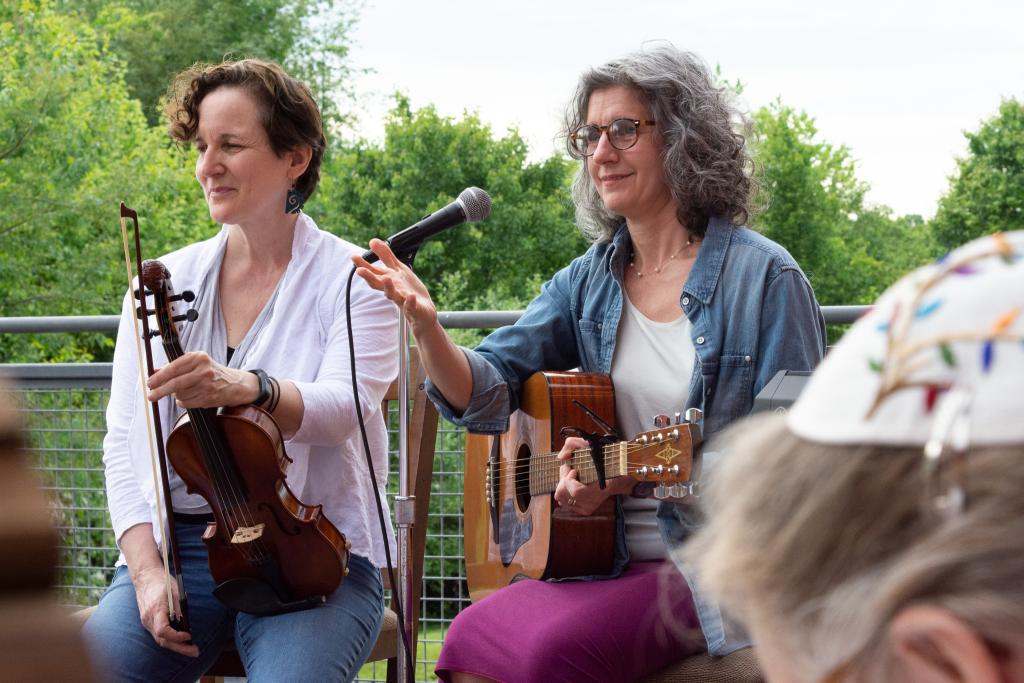

Entering Tammuz 5780 – Descent for the Sake of Ascent
Rabbi Hazzan Rachel Hersh
The Hebrew month of Tammuz begins on Tuesday, June 23, 2020. With this new month, we begin a season of psycho-spiritual descent as we recall the beginning of the end of the entire Biblical period of our history. Jewish history assigns the 17th of Tammuz (this year, July 9) as the date when the Romans breached the walls of ancient Jerusalem on their way to destroying the Temple and the whole city, and setting in motion an exile of more than two thousand years. It is a dark season in the Jewish calendar cycle, characterized by two traditional fast days and bereft of any of the holiday delights of other parts of the year. Not only are there no special foods, we are bidden to abstain from food and drink both on the 17th of Tammuz and again later on the 9th of Av, Tisha B’Av, next month. We intentionally enter a state of mourning for this three-week period and, temporarily, suspend our need for things to be alright, instead explicitly acknowledging that they are not.
Like everything else during this historic pandemic, this annual season of spiritual descent will have new meaning this summer. On some level, it may be a relief to release ourselves from the social pressure to always ‘look on the bright side’ and try to find the blessing in everything. Rather, during this season, cued by historical events and sacred myths from before the common era, we’re asked to surrender to the reality of our pain and suffering, both the historical and collective and also the current and immediate. In that surrender, in that paradoxical embrace of the mourning state, we have access to understanding that eludes us otherwise. Before we engage in the ongoing work of building up, of repairing, we affirm: everything is going to pieces.
To our American sensibility, this sounds wrong. Americans don’t wallow, but instead roll up our sleeves. We don’t lament, but instead get busy. And there is much to admire in that spirit of resilience and industry (and much to criticize as well), but our Jewish tradition emphasizes the importance of communal lament. Our Jewish tradition says we can never be whole if we never allow ourselves to feel how truly broken we are. Our Jewish tradition understands that mourning the traumas of the past and the present is an essential ingredient to real healing, an essential key to unlock the door to real strength. Our Chasidic masters refer to this as עליה לצורך ירידה ,y’ridah l’tzorech aliyah, descent for the sake of ascent.
Descent for the sake of ascent refers to the spiritual practice of really mourning our traumas in order to get in touch with our basic vulnerability. By reminding ourselves of this aspect of our reality, by “getting real” with ourselves and acknowledging our exposure to so much potential pain and loss, we discover the core of strength that remains elusive otherwise. As the great Buddhist teacher, Pema Chodron wrote in her book, When Things Fall Apart, “anyone who stands on the edge of the unknown, fully in the present without reference point, experiences groundlessness. That’s when our understanding goes deeper, when we find that the present moment is a pretty vulnerable place and that this can be completely unnerving and completely tender at the same time.”
No need to worry about getting lost here. The Jewish calendar has other plans for us and will lift us up in comfort and consolation, next month, and ultimately to celebration at Rosh HaShana. But for now, we welcome in the darkness, allow ourselves to wander in the cave of the unknown, to be with our painful communal memories of destruction and with our own real fears: will I and my loved ones survive this pandemic? will our country be able to withstand the ongoing assault to our democratic infrastructure and will we elect the leaders we need? will we ever find our way to a better place of racial and ethnic justice? can the Zionist dream of a truly democratic Israel that honors all of its citizens still be realized? will we summon the will to face our global climate crisis, before it is too late?
In this new month, may we find the courage to be with our fears, not chase them away with the power of positive thinking, but rather be present to each fearful moment and discover the insights that only that courageous presence offers. Chodesh Tov.
Copyright © 2025 Adat Shalom Reconstructionist Congregation. All rights reserved.